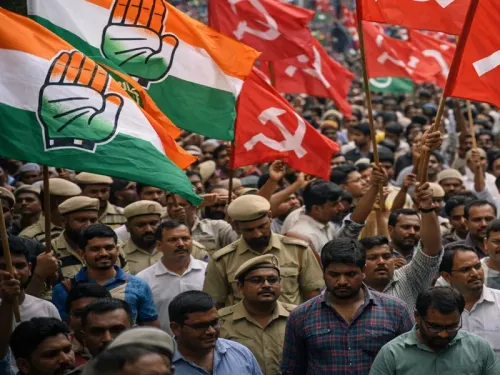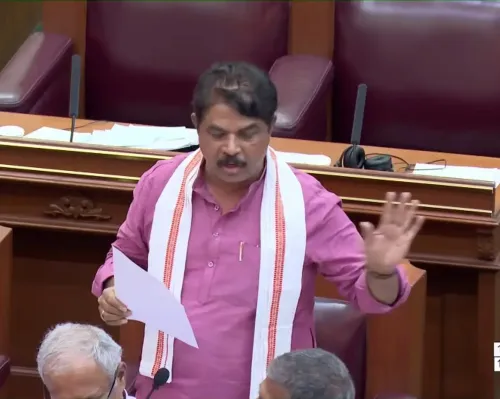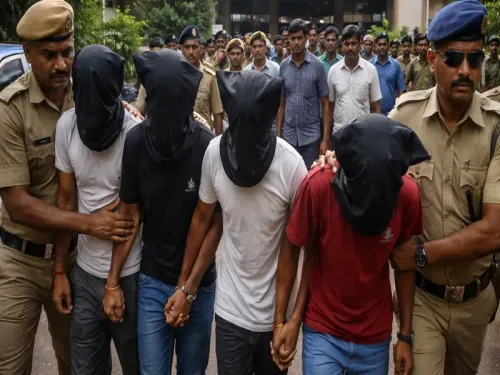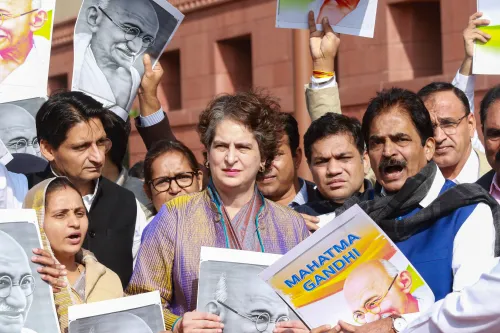Why Are Outstanding Agri Loans to Banks Rising to Rs 37,392 Crore?

Synopsis
Key Takeaways
- Outstanding agricultural loans have reached Rs 37,392 crore in Maharashtra.
- District central cooperative banks face significant financial stress due to rising arrears.
- Farmers are postponing loan repayments in anticipation of a crop loan waiver.
- The government has formed a committee to review the crop loan waiver issue.
- A total of 20.37 lakh farmer accounts are affected by outstanding dues.
Mumbai, July 24 (NationPress) As anticipation builds for a decision regarding a crop loan waiver by the MahaYuti government, which was promised prior to the assembly elections, it has been reported that the outstanding agriculture loan arrears owed to banks as of June this year stands at Rs 37,392 crore.
Data compiled by the state cooperation department reveals that out of the Rs 37,392 crore, district central cooperative banks (DCCBs) have unrecovered arrears amounting to Rs 15,492 crore, nationalised banks Rs 18,000 crore, regional rural banks Rs 800 crore, and private banks Rs 3,000 crore.
The rising outstanding liabilities are negatively affecting the financial stability of these banks, with nearly 20.37 lakh farmer bank accounts currently showing outstanding dues.
Sources from the department indicated on Thursday that the arrears stemming from non-repayments of crop loans, as well as short, medium, and major loans, are likely to increase further as farmers await an early decision on the crop loan waiver.
Despite appeals from Deputy Chief Minister Ajit Pawar and Agriculture Minister Manikrao Kokate for farmers to settle their dues promptly, many continue to delay repayment, hoping for the waiver announcement.
On the last day of the monsoon session on July 18, the government announced the formation of a committee to address the crop loan waiver topic and the current agricultural stress.
Cooperation Minister Babasaheb Patil commented, “The government has established a committee to explore the crop loan waiver option. It is troubling that even financially stable farmers are not repaying their loans, leading to a precarious situation for district central cooperative banks that are vital to the rural economy.”
According to cooperation department sources, an average of Rs 70,000 crore in crop loans is disbursed annually within the state. Of this, 65% is distributed by nationalised banks and 35% by district central cooperative banks.
“Farmers with substantial landholdings typically prefer loans from nationalised banks, while those with smaller or marginal holdings rely on district central cooperative banks.”
Sources also noted that the financial health of several district central cooperative banks, including those in Nashik, Wardha, and Nagpur, is deteriorating. Even robust banks may face financial crises if farmers’ arrears continue to escalate.
“Although the government offers agricultural loans at concessional interest rates, farmers seem disinclined to repay their loans as they await the crop loan waiver decision. If this trend persists, there is a real risk of collapse within the rural agricultural credit system,” expressed sources from the cooperation department.










